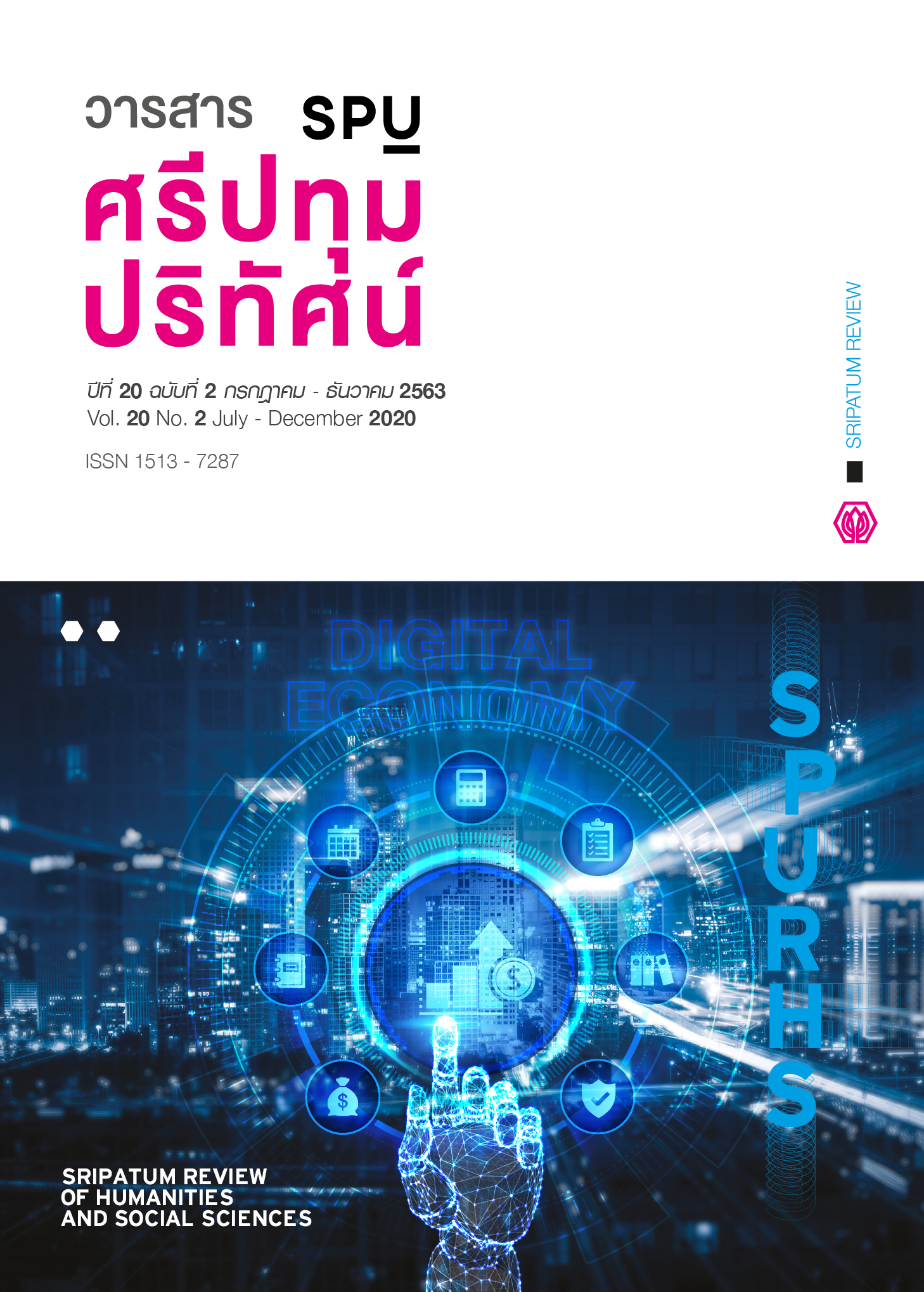The Development of Screening Scales of Passion for Learning of Kasetsart University Students
Main Article Content
Abstract
This research was conducted with 3 objectives: (1) to study the construct validity and reliability and to construct the norm using T-scores yielded from Screening Scales of Passion for Learning of Kasetsart University students; (2) to analyze the confirmatory factors of passion for learning and the level of passion for learning of Kasetsart University students; and (3) to develop a manual for using the Screening Scales of Passion for Learning of Kasetsart University students. Samples used were 1,240 undergraduate students of Kasetsart University, Bang Khen campus, randomly selected by multi-stage sampling method. A tool used was a 5-level rating scale. Data were analyzed using descriptive statistics and inferential statistics. Results revealed that the Screening Scales of Passion for Learning had Index of Item – Objective Congruence (IOC) from 0.66 to 1.00 and index of item discrimination from 0.32 to 0.64. Confirmatory Factor Analysis (CFA) demonstrated that the Screening Scales of Passion for Learning were consistent to the empirical data and construct validity. Cronbach’s alpha reliability coefficient of the scales was 0.90, harmonious passion subtest was 0.87 and obsessive passion subtest was 0.81. The norms for interpretation of the Screening Scales in the form of T-scores were T26-T74 for first year students, T28-T74 for second year students, T17-T71 for third year students, and T24-T74 for fourth year students.
Article Details
1. กองบรรณาธิการสงวนสิทธิ์ในการพิจารณาและตัดสินการตีพิมพ์บทความในวารสาร
2. บทความทุกเรื่องจะได้รับการตรวจสอบทางวิชาการโดยผู้ทรงคุณวุฒิ แต่ข้อความและเนื้อหาในบทความที่ตีพิมพ์เป็นความรับผิดชอบของผู้เขียนแต่เพียงผู้เดียว มิใช่ความคิดเห็นและความรับผิดชอบของมหาวิทยาลัยศรีปทุม
3. การคัดลอกอ้างอิงต้องดำเนินการตามการปฏิบัติในหมู่นักวิชาการโดยทั่วไป และสอดคล้องกับกฎหมายที่เกี่ยวข้อง
References
Angsuchoti, S., Vichitwanna, S., and Phinyo-Phanuwat, R. (2008). Statistical analysis for social science and behavioral research: LISREL Program Techniques. Bangkok: Mission Media.(in Thai)
Chanthasin, W., Chanthasin, T., Supmee, M., Hatthasak, M., and Boonsathirakul, J. (2019). A Study of Identity of First-Year Students Kasetsart University. Rajapark Journal, 13(30), 292-305.(in Thai)
Drucker, P. (2012). Management challenges for the 21st century. Burlington: Elsevier.
Gamket, W. (2008). Research methods in behavioral science. Bangkok: Chulalongkorn University Printing House. (in Thai)
Hair, J. F., Black, W. C., and Babin, B. J. (2010). RE Anderson Multivariate data analysis: A global perspective. New Jersey: Pearson Prentice Hall.
Hughes, C. (2012). Passion for Beauty: A Model for Learning. Creative Education, 3(3), 334-340.
Kasetsart University. (2019). Educational Management: Courses Classified by Program Type and Education Level. [Online]. Retrieved April 1, 2019, from: http://ku.ac.th. (in Thai)
Lambensa, P. (2016). Teaching documents for finding the quality of test and measurement tools. Yala: Yala Rajabhat University. (in Thai)
Laothong, N. (2016). Construction of educational research instruments. Bangkok: The Publisher of Chulalongkorn University. (in Thai)
Lekpetch, A., Piyapimonsit, C., and Ekwarangkoon, P. (2016). Development of students' characteristics according to Kasetsart University identity scale for undergraduate students at Kasetsart University. Kasetsart Education Review, 31, 186-195. (in Thai)
Na-Ranong, L. (2016). A synthesis of researches on counseling theory in the guidance and counseling aspects: content analysis. Veridian E-Journal of Humanities, Social Sciences and arts, 10(2), 1488-1499. (in Thai)
Ngamviriyawong, N. (2011). Construction of the managerial skills for manager in private enterprises. Thesis of the Degree of Master of Education Degree in Guidance and Counseling Psychology. Bangkok: Srinakharinwirot University. (in Thai)
Marsh H. W., Vallerand R. J., Lafreniere M. A., Parker P., Morin A. J., Carbonneau N., et al. (2013). Passion: Does one scale fit all? Construct validity of two-factor passion scale and psychometric invariance over different activities and languages. Psychol Assess, 25(3),796-809.
Punpukdee, A. (2016). The Comparison of the Use of Statistics Analysis in Testing Construct Validity of Social Capital: An Exploratory Factor Analysis (EFA) and A Confirmatory Factor Analysis (CFA). Journal of Business, Economics and Communications, 11(2), 46-61. (in Thai)
Ranabutr, S., Pinyo-Anantaphong, S., Pinyo-Anantaphong, B., and Boonthima, R. (2015). The Study and Development of the Student Engagement of Bachelor Degree Students in Early Childhood Education Program. Buabandit Journal of Educational Administration, 15, 31-43. (in Thai)
Serin H. (2017). The Role of Passion in Learning and Teaching. International Journal of Social Sciences and Educational Studies, 4(1), 60-64.
Suwanwong, N. (2017). Factors Affecting Decision Making for Studying Undergraduate in Rajamangala University of Technology Isan, Nakhon Ratchasima (Quota System) Academic Year 2017. Nakhon Ratchasima: Rajamangala University of Technology Isan. (in Thai)
Vallerand, J. R. (2016). The Dualistic Model of Passion: Theory, Research, and Implications for the Field of Education. Building autonomous learners. New York: Springer Science Business Media.


